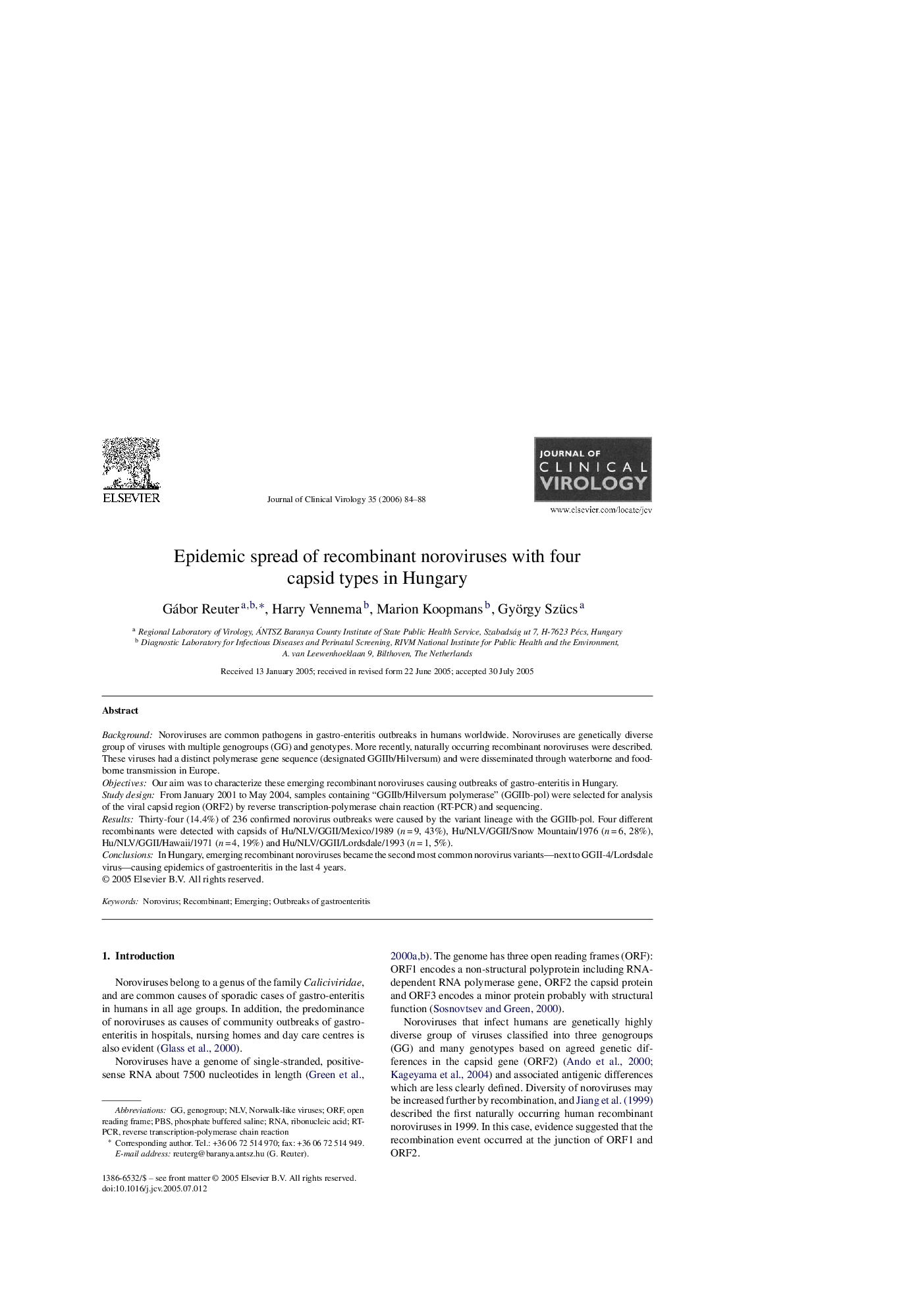| Article ID | Journal | Published Year | Pages | File Type |
|---|---|---|---|---|
| 3371351 | Journal of Clinical Virology | 2006 | 5 Pages |
BackgroundNoroviruses are common pathogens in gastro-enteritis outbreaks in humans worldwide. Noroviruses are genetically diverse group of viruses with multiple genogroups (GG) and genotypes. More recently, naturally occurring recombinant noroviruses were described. These viruses had a distinct polymerase gene sequence (designated GGIIb/Hilversum) and were disseminated through waterborne and food-borne transmission in Europe.ObjectivesOur aim was to characterize these emerging recombinant noroviruses causing outbreaks of gastro-enteritis in Hungary.Study designFrom January 2001 to May 2004, samples containing “GGIIb/Hilversum polymerase” (GGIIb-pol) were selected for analysis of the viral capsid region (ORF2) by reverse transcription-polymerase chain reaction (RT-PCR) and sequencing.ResultsThirty-four (14.4%) of 236 confirmed norovirus outbreaks were caused by the variant lineage with the GGIIb-pol. Four different recombinants were detected with capsids of Hu/NLV/GGII/Mexico/1989 (n = 9, 43%), Hu/NLV/GGII/Snow Mountain/1976 (n = 6, 28%), Hu/NLV/GGII/Hawaii/1971 (n = 4, 19%) and Hu/NLV/GGII/Lordsdale/1993 (n = 1, 5%).ConclusionsIn Hungary, emerging recombinant noroviruses became the second most common norovirus variants—next to GGII-4/Lordsdale virus—causing epidemics of gastroenteritis in the last 4 years.
